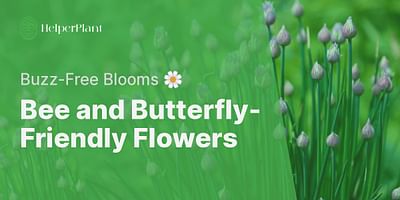Fiona Kessler is a seasoned horticulturalist and avid blogger, passionate about sharing her extensive knowledge of companion planting with her readers. Fiona firmly believes in the therapeutic and transformative power of gardening, viewing it as a unique way to cultivate a deeper connection with nature and enhance overall well-being.
1. Bee Balm (Monarda)
Bee balm is a vibrant and aromatic flower that bees absolutely love. Its tubular shape and bright colors make it irresistible to these pollinators. Plus, it's a great addition to any garden, adding a pop of color and attracting other beneficial insects as well.
2. Sunflowers (Helianthus)
Sunflowers are not only beautiful to look at but also a favorite among bees. Their large, open faces and abundant pollen make them a fantastic choice for attracting these buzzing creatures. Choose varieties with single or semi-double flowers, as they provide easier access to nectar and pollen.
3. Lavender (Lavandula)
Lavender is not only a delight for our senses but also a magnet for bees. Its fragrant flowers and long blooming season make it a reliable source of nectar. Bees are particularly attracted to English lavender (Lavandula angustifolia) and French lavender (Lavandula dentata).
4. Salvia (Salvia spp.)
Salvia, also known as sage, is a fantastic plant for attracting bees. With its tall spikes of vibrant flowers, it provides a bountiful supply of nectar. Bees are especially fond of culinary sage (Salvia officinalis) and perennial salvia (Salvia nemorosa).
5. Borage (Borago officinalis)
Borage is not only a beautiful addition to your garden but also a favorite of bees. Its blue, star-shaped flowers are rich in nectar and pollen, making it an excellent choice for attracting these important pollinators. Borage is also a great companion plant for many vegetables, as it helps deter pests.
6. Chamomile (Matricaria chamomilla)
Chamomile is not only a soothing herb but also a favorite of bees. Its daisy-like flowers provide a good source of nectar and pollen. Planting chamomile in your garden will not only attract bees but also enhance the health and productivity of your plants through companion planting.
Remember, bees are attracted to a variety of flowers, so it's best to create a diverse garden with a mix of colors, shapes, and bloom times. This way, you'll provide a continuous food source for bees throughout the growing season.
To attract bees, it's important to avoid using pesticides and herbicides in your garden. These chemicals can harm bees and other beneficial insects. Instead, opt for organic gardening methods and natural pest control solutions.
By incorporating these bee-friendly plants into your garden, you'll not only create a beautiful and vibrant space but also contribute to the well-being of these important pollinators. So, get planting and enjoy the sight of bees buzzing happily in your garden!









